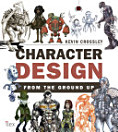Transmedia Frictions: The Digital, the Arts, and the Humanities
Marsha Kinder · Tara McPherson
Jul 2014 · Univ of California Press
Ebook
416
Pages
family_home
Eligible
info
reportRatings and reviews aren’t verified Learn More
About this ebook
Editors Marsha Kinder and Tara McPherson present an authoritative collection of essays on the continuing debates over medium specificity and the politics of the digital arts. Comparing the term "transmedia" with "transnational," they show that the movement beyond specific media or nations does not invalidate those entities but makes us look more closely at the cultural specificity of each combination. In two parts, the book stages debates across essays, creating dialogues that give different narrative accounts of what is historically and ideologically at stake in medium specificity and digital politics. Each part includes a substantive introduction by one of the editors.
Part 1 examines precursors, contemporary theorists, and artists who are protagonists in this discursive drama, focusing on how the transmedia frictions and continuities between old and new forms can be read most productively: N. Katherine Hayles and Lev Manovich redefine medium specificity, Edward Branigan and Yuri Tsivian explore nondigital precursors, Steve Anderson and Stephen Mamber assess contemporary archival histories, and Grahame Weinbren and Caroline Bassett defend the open-ended mobility of newly emergent media.
In part 2, trios of essays address various ideologies of the digital: John Hess and Patricia R. Zimmerman, Herman Gray, and David Wade Crane redraw contours of race, space, and the margins; Eric Gordon, Cristina Venegas, and John T. Caldwell unearth database cities, portable homelands, and virtual fieldwork; and Mark B.N. Hansen, Holly Willis, and Rafael Lozano-Hemmer and Guillermo Gómez-Peña examine interactive bodies transformed by shock, gender, and color.
An invaluable reference work in the field of visual media studies, Transmedia Frictions provides sound historical perspective on the social and political aspects of the interactive digital arts, demonstrating that they are never neutral or innocent.
Part 1 examines precursors, contemporary theorists, and artists who are protagonists in this discursive drama, focusing on how the transmedia frictions and continuities between old and new forms can be read most productively: N. Katherine Hayles and Lev Manovich redefine medium specificity, Edward Branigan and Yuri Tsivian explore nondigital precursors, Steve Anderson and Stephen Mamber assess contemporary archival histories, and Grahame Weinbren and Caroline Bassett defend the open-ended mobility of newly emergent media.
In part 2, trios of essays address various ideologies of the digital: John Hess and Patricia R. Zimmerman, Herman Gray, and David Wade Crane redraw contours of race, space, and the margins; Eric Gordon, Cristina Venegas, and John T. Caldwell unearth database cities, portable homelands, and virtual fieldwork; and Mark B.N. Hansen, Holly Willis, and Rafael Lozano-Hemmer and Guillermo Gómez-Peña examine interactive bodies transformed by shock, gender, and color.
An invaluable reference work in the field of visual media studies, Transmedia Frictions provides sound historical perspective on the social and political aspects of the interactive digital arts, demonstrating that they are never neutral or innocent.
About the author
Marsha Kinder is Emerita University Professor at University of Southern California's School of Cinematic Arts, where she was the founding director of the Labyrinth Project. Her books include Playing with Power in Movies, Television, and Video Games and Blood Cinema: The Reconstruction of National Identity in Spain. Tara McPherson is Professor and the Hefner Endowed Chair of Censorship Studies in the University of Southern California's School of Cinematic Arts. She is author of Feminist in a Software Lab and Reconstructing Dixie, editor of Digital Youth, Innovation, and the Unexpected, and coeditor of Hop on Pop: The Politics and Pleasures of Popular Culture.
Rate this ebook
Tell us what you think.
Reading information
Smartphones and tablets
Install the Google Play Books app for Android and iPad/iPhone. It syncs automatically with your account and allows you to read online or offline wherever you are.
Laptops and computers
You can listen to audiobooks purchased on Google Play using your computer's web browser.
eReaders and other devices
To read on e-ink devices like Kobo eReaders, you'll need to download a file and transfer it to your device. Follow the detailed Help Center instructions to transfer the files to supported eReaders.




